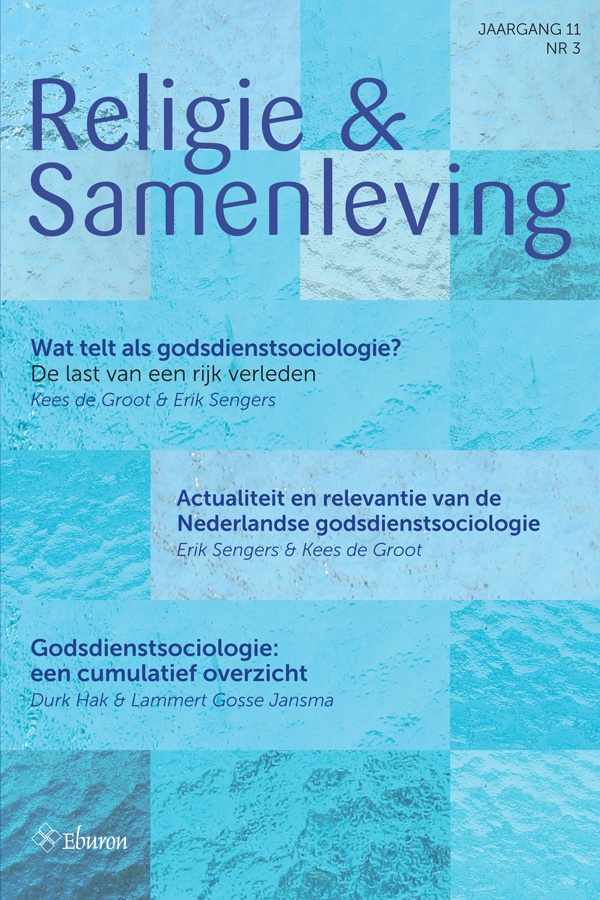Actualiteit en relevantie van de Nederlandse godsdienstsociologie
DOI:
https://doi.org/10.54195/RS.12218Samenvatting
In a secular society, as is the Netherlands, the position of religions and religious organisations is a theme of controversial debates. Curiously enough, sociologists of religion do not play a prominent role in these debates. The question of this article is, what the contribution of contemporary Dutch sociology of religion is to science and society. The article starts with several characteristics of Dutch sociology of religion: it is connected with the emancipation of religious minorities, it was at the service of governmental planning (church buildings as well as social and welfare organizations), sociology of religion was located at theological faculties, thus it was mainly oriented at mainline Christianity and not at world religions, and finally sociology of religion is being replaced by more anthropological studies. The thesis of the article is that sociologists of religion stuck to these characteristics for too long, not being able to react to the changing religious context in time. The second part of the article focuses on the contemporary situation of sociology of religion. Starting with active emeriti, the paper discusses the academic departments, research institutes, and professional associations. The article concludes that sociology of religion remains relevant in research about the social-cultural consequences of secularisation and about the position of religion in hyper-diverse societies. To take that role, sociology of religion should become more sociological, focus on sociological methods and theories, and the social and political consequences and impact of religion.




